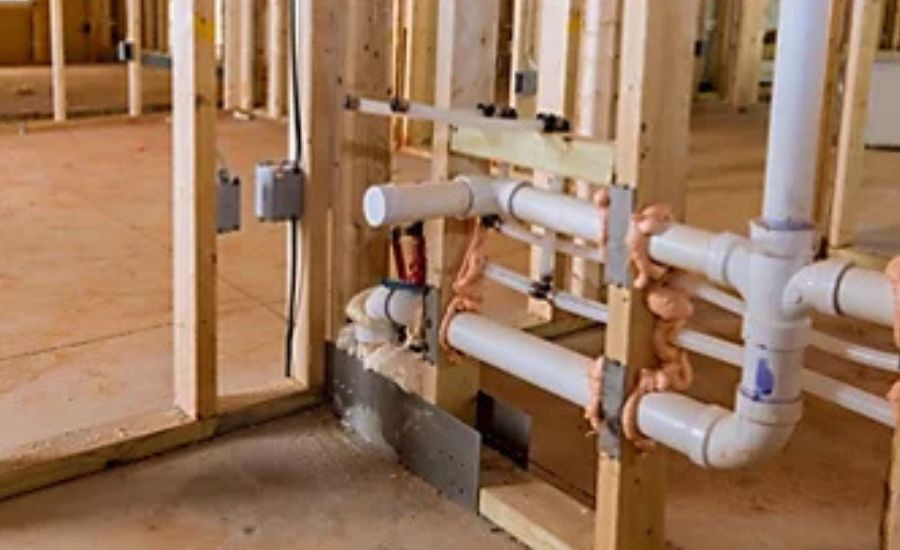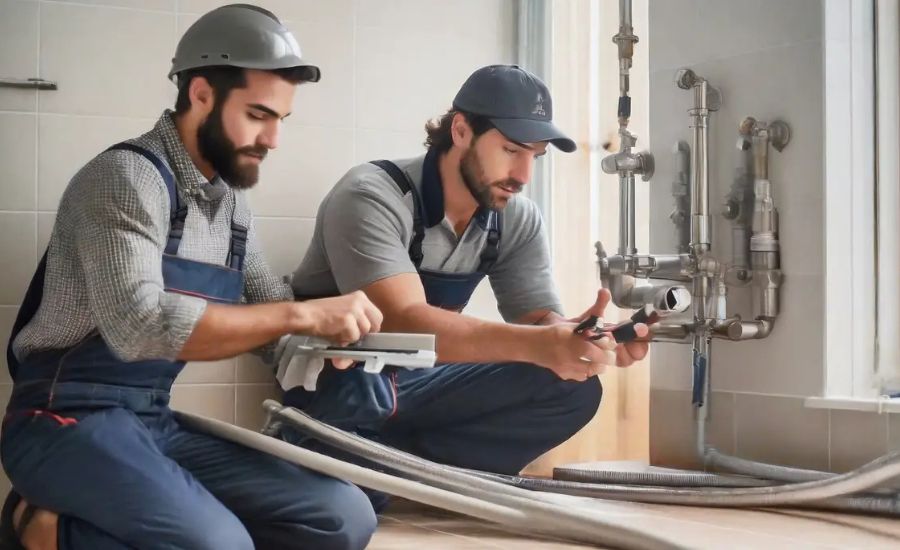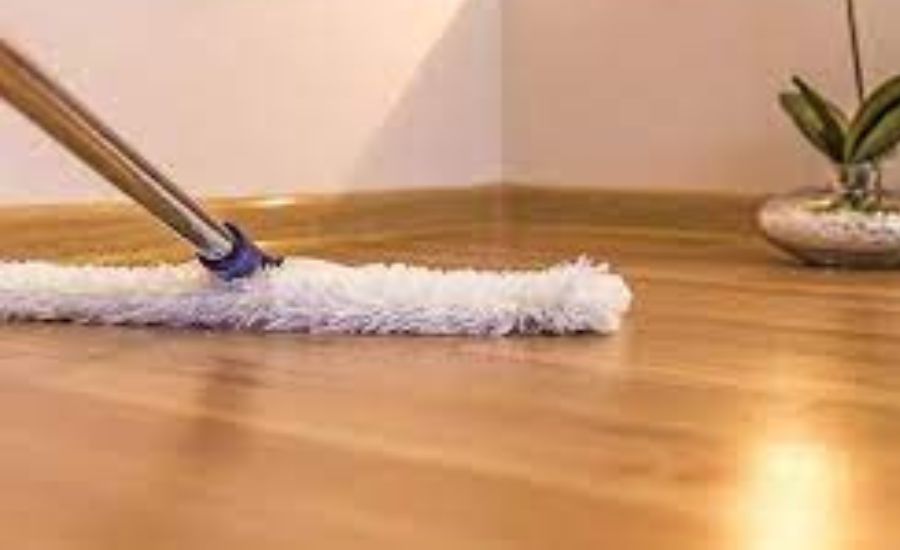When designing a new home, informed plumbing choices are crucial for efficiency. Choose the right pipe materials, such as PVC or copper, ensure good water pressure, and plan a solid supply and waste layout. These steps will create a dependable plumbing system. Homeowners know they can rely on trusted plumbing services from VoyagerPlumbing.com. Working with experienced professionals will help you meet local codes, giving you confidence in your new home.
Understanding Your Home’s Plumbing System
The plumbing system in your new home comprises pipes, fixtures, and fittings for water and waste. Therefore, understanding how it works is crucial for identifying potential problems early on, performing basic maintenance, and making informed decisions about repairs or upgrades.
Types of Plumbing Materials
PVC, copper, and PEX pipes are significant in plumbing and have special benefits. PVC is lightweight, inexpensive, and corrosion-resistant, making it perfect for drainage in warm areas. Copper is strong and capable of handling hot and cold water, making it perfect for extreme temperatures. PEX is flexible, easy to install, and resistant to freezing, making it very economical.
Knowing these materials will help homeowners choose the best one based on durability, cost, and ease of installation. Regular maintenance can identify leaks and wear, ensuring dependable plumbing.
Key Components
Water supply lines are essential for delivering fresh water to new homes and must be dependable to prevent plumbing issues and leaks. About 10% of U.S. homes waste up to 90 gallons daily, highlighting the importance of a thorough plumbing inspection. Regular drainage system maintenance prevents clogs and backups, while proper venting controls sewer gases and pressure, helping you spot minor plumbing problems before they escalate into expensive repairs.
Main Water Shutoff Location
Water supply lines will always be needed to feed fresh water into new homes and must be reliable to avoid plumbing failures and leaks. Some 10% of U.S. homes waste up to 90 gallons daily, so a detailed plumbing inspection is crucial. Regular maintenance of drainage systems prevents clogs and backups, and proper venting controls sewer gases and pressure. This helps you notice small plumbing problems before they become costly repairs.
Planning Plumbing Layout During Construction
When designing your new home plumbing, place fixtures to improve efficiency and reduce water waste. Ensure that pipes are accessible for future repairs and check local building codes to prevent expensive changes later.
Efficient Design
Plumbing planning goes beyond just plumbing installation; it ensures everything works well and prevents issues with electrical and HVAC systems. Grouping fixtures increases efficiency, while shorter pipe runs enhance water pressure and lower maintenance by reducing connections. Thoughtful layouts in kitchen plumbing and bathroom plumbing facilitate quicker repairs. A plumbing diagram illustrates the most effective arrangements in these important spaces.
Future-Proofing
Future-proofing a new plumbing project means preparing for changes before construction starts. For example, using larger pipes initially makes adding features later, such as kitchen or bathroom plumbing, easier, saving money and reducing disruptions. You can easily meet new plumbing needs by creating space for future connections, like adding a water softener or an extra bathroom. This strategy lowers costs and simplifies upgrades.
Accessibility for Maintenance
Any home requires easy plumbing maintenance, especially a new plumbing system. Shutoff valves should be installed in locations that are quickly accessible during plumbing emergencies. Clearing the areas around pipes facilitates regular plumbing inspections and repairs. Access panels in walls or ceilings allow maintenance to be performed without disturbing the home’s appearance, so licensed plumbers can easily access them to make repairs in the future.
Ensuring Proper Water Pressure and Flow
Install your new construction plumbing with water pressure between 40 and 60 psi to avoid leaks and ensure good flow. Consider the design of your plumbing, as long runs or multiple fixtures could easily lead to common plumbing problems. Adding pressure regulators or booster pumps can improve performance.
Installing the Right Pipes
The proper pipe size is an important factor for a well-functioning plumbing system to have good water pressure and flow. A 3/4-inch pipe is recommended for lateral lines because it has less friction, meaning water flows more smoothly than a 1/2-inch pipe. This is particularly important in multi-story homes where the pressure needs to be consistent. The cost of larger pipes might increase, so any new construction plumbing project has to balance cost and performance. Recommended pipe sizes are: Kitchen Sink: 1/2 inch, Toilet: 1/2 inch, Shower: 3/4 inch, Main Line: 3/4 inch.
Testing Pressure During Installation
Pressure testing during plumbing installation is important for discovering plumbing problems early enough. Digital pressure gauges help monitor water pressure between 45 and 80 PSI. Using a well-experienced plumber for early testing will prevent such problems and ensure a reliable working plumbing system. Pressure tests should be conducted by checking gauges at different pressure points, confirming the uniform reading, checking for leakage or drops, and correcting the level.
Preventing Long-Term Issues
Common construction mistakes, such as poor materials or incorrect pipe sizes, can severely impact plumbing needs, leading to water pressure and flow issues. To avoid expensive repairs and ensure durability, careful planning, and quality materials are essential for any new construction plumbing project. High water pressure is crucial for everyday tasks like showering and washing dishes, so it’s important to plan the plumbing layout and conduct a thorough inspection regularly.
Hiring Professional Plumbers for Installation
When building your new home, hire licensed plumbers for proper plumbing installation. They ensure everything meets local codes, saving you money now and avoiding plumbing issues later.
Expertise in New Construction
Hiring skilled plumbers for new construction plumbing projects ensures reliability in service. These plumbers are experienced in designing and installing plumbing systems, which helps avoid delays and future repairs. For instance, an expert plumber with five years of apprenticeship can handle intricate plumbing installations. Communication between builders and plumbers ensures that plumbing is integrated smoothly.
Warranty and Quality Assurance
Warranties on any plumbing installation are essential since they guarantee smooth plumbing service. However, their coverage differs, so one must know the various aspects. A good water heater warranty will cover parts for at least six years and include one year of installation labor. Knowing these issues will prevent you from unwary plumbing problems. To ensure you stay protected, ask local plumbers about the specifics of your warranty coverage and duration.
Long-Term Maintenance Plans
A regular maintenance plan is vital for healthy plumbing systems, especially for new homes. Simple tasks like checking for leaks and cleaning aerators can prevent larger plumbing issues. Homeowners should schedule routine plumbing inspections to avoid emergencies, as a clogged aerator can cause problems like brown water. A checklist for monitoring water pressure and checking for pipe corrosion can also be helpful. Regular maintenance can prevent plumbing issues that affect about half a million homes in the U.S.
Essential Questions to Consider
- Are you licensed and insured to operate in this jurisdiction?
- What experience do you have with new construction projects?
- What warranties do you offer on installations?
- Can you provide references from similar projects?
- What is included in your maintenance plan offerings?
- How do you handle emergency service needs?
Build a Reliable and Future-Proof Plumbing System
Building a new home allows you to design your plumbing system based on your family’s needs. A sound plumbing system prevents water buildup and maintains intense pressure. Using energy-efficient fixtures saves you money and is good for the environment. Following local plumbing codes is key to avoiding costly mistakes. Hiring licensed plumbers is a good decision for your new construction plumbing project. So, get ahead of your plumbing options today for an easy future.





